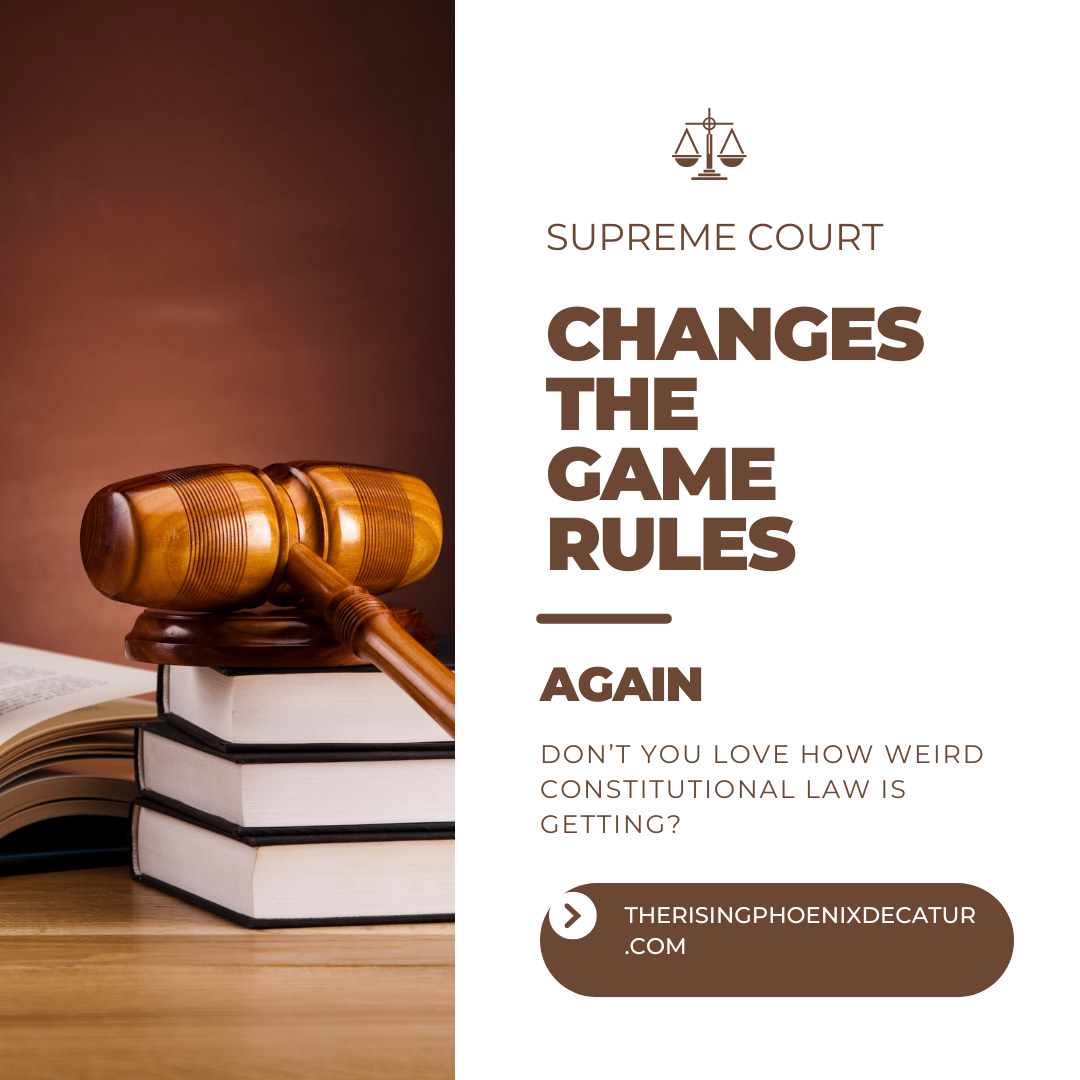Supreme Court Changes the Rules of the Game (Again)
Or: How I Learned to Stop Worrying and Love Constitutional Law Getting Weird
Well, folks, the Supreme Court has decided to shake things up again. In what can only be described as the legal equivalent of "actually, we're changing the rules mid-game," SCOTUS just handed down a ruling that fundamentally alters how federal courts can respond to executive orders. And honestly? It's about as straightforward as a Rubik's cube solved by a caffeinated octopus.
The TL;DR Version (Because We're All Very Busy People)
Here's what happened: Lower courts can no longer issue those pesky nationwide injunctions that have been cramping presidential style for decades. You know, those court orders that essentially say "Hey, Mr. President, maybe don't do that thing everywhere all at once"? Yeah, those are mostly gone now.
The catch? Courts can still block policies, but only for the specific people who filed the lawsuit. It's like getting a restraining order that only applies to you and your immediate family, while everyone else has to fend for themselves.
What This Actually Means (Spoiler Alert: It's Complicated)
Remember when one federal judge could look at a policy and say "Nope, this doesn't fly anywhere in America"? Those days are officially in the rearview mirror. Now, if you want broad protection from a policy you think is unconstitutional, you'll need to organize what's essentially a legal flash mob – aka a class action lawsuit.
This is where things get interesting (and by interesting, I mean potentially chaotic). Imagine trying to coordinate a class action lawsuit every time someone wants to challenge a major policy. It's like herding cats, except the cats are lawyers, and they all bill by the hour.
The Justices Weigh In (With Varying Degrees of Enthusiasm)
Amy Coney Barrett wrote the majority opinion, essentially arguing that federal courts shouldn't act like helicopter parents monitoring every executive branch decision. Her basic point: courts should stick to resolving specific disputes, not playing nationwide policy referee.
Meanwhile, Sonia Sotomayor was having none of it, accusing her colleagues of enabling what she called constitutional "gamesmanship." In legal terms, that's basically the equivalent of saying "Really? We're doing this now?"
Ketanji Brown Jackson went even further, suggesting this creates "an existential threat to the rule of law." When a Supreme Court Justice uses the phrase "existential threat," you know someone's really not happy about the group project.
The Practical Implications (Or: Why Lawyers Are Both Celebrating and Panicking)
Here's where it gets fun. This ruling doesn't just affect one administration – it's a permanent change to how federal courts operate. That means future presidents of all political stripes will benefit from this expanded executive power. It's like giving every future president a "Get Out of Court (Temporarily) Free" card.
The irony? This same tool that liberal groups used to challenge conservative policies, and conservative groups used to challenge liberal policies, has now been significantly neutered. It's democracy's version of "you can't fire me, I quit!"
Working full-time for you fighting the corruption in Washington DC so you can work full-time supporting your family.
The Bottom Line
The Supreme Court just made it significantly harder to hit the nationwide pause button on executive actions. Whether this strengthens democratic governance or weakens judicial oversight depends entirely on your perspective and probably your party affiliation.
What's certain is that constitutional law just got a lot more complicated, class action lawyers just got a lot busier, and the rest of us are left trying to figure out what this means for democracy, governance, and our collective sanity.





